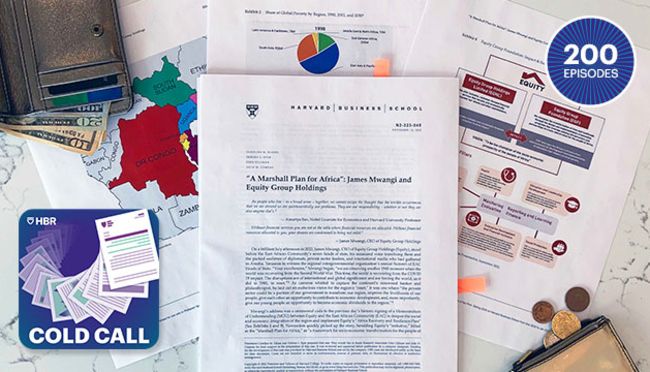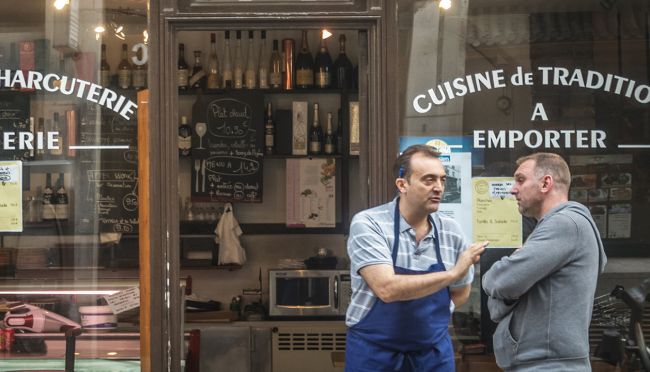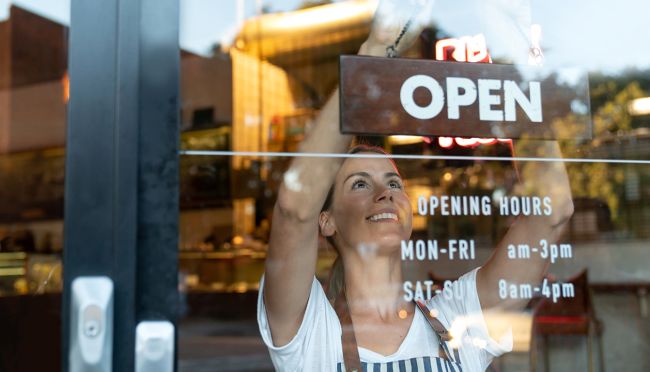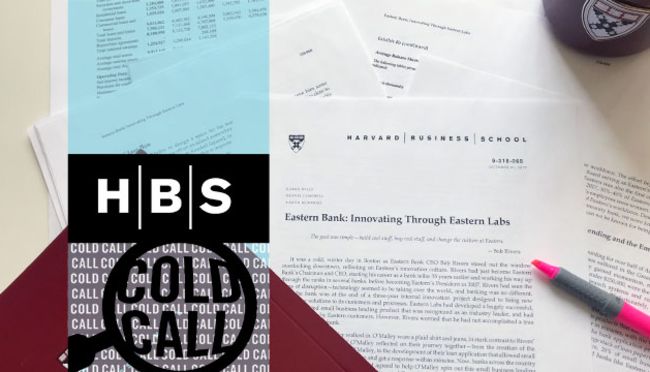Financing and Loans →
→

- 27 Apr 2023
- Cold Call Podcast
Equity Bank CEO James Mwangi: Transforming Lives with Access to Credit
James Mwangi, CEO of Equity Bank, has transformed lives and livelihoods throughout East and Central Africa by giving impoverished people access to banking accounts and micro loans. He’s been so successful that in 2020 Forbes coined the term “the Mwangi Model.” But can we really have both purpose and profit in a firm? Harvard Business School professor Caroline Elkins, who has spent decades studying Africa, explores how this model has become one that business leaders are seeking to replicate throughout the world in her case, “A Marshall Plan for Africa': James Mwangi and Equity Group Holdings.” As part of a new first-year MBA course at Harvard Business School, this case examines the central question: what is the social purpose of the firm?

- 13 Mar 2023
- Research & Ideas
What Would It Take to Unlock Microfinance's Full Potential?
Microfinance has been seen as a vehicle for economic mobility in developing countries, but the results have been mixed. Research by Natalia Rigol and Ben Roth probes how different lending approaches might serve entrepreneurs better.

- 25 Oct 2020
- Research & Ideas
The Dark Side of Fintech Borrowing
Fintechs have revolutionized the banking industry, but some customers end up worse for the experience, according to research by Marco Di Maggio and colleagues. Open for comment; 0 Comments.

- 19 Oct 2020
- Working Paper Summaries
Bankruptcy and the COVID-19 Crisis
Analyzing the impact of the COVID-19 crisis on bankruptcy filing rates in the United States, this study finds that large businesses, small businesses, and consumers experience very different effects of the crisis.

- 26 Jun 2020
- Working Paper Summaries
Weak Credit Covenants
Prior to the 2020 pandemic, the leveraged loan market experienced an unprecedented boom, which came hand in hand with significant changes in contracting terms. This study presents large-sample evidence of what constitutes contractual weakness from the creditors’ perspective.

- 08 Jun 2020
- Working Paper Summaries
Loan Types and the Bank Lending Channel
Practitioners commonly refer to four distinct loan types: asset-based loans, cash flow loans, trade financing, and leasing. It is important to account for these differences in loan type in order to analyze the economic significance of credit market disruptions.

- 11 May 2020
- Working Paper Summaries
Targeting High Ability Entrepreneurs Using Community Information: Mechanism Design in the Field
Based on a field experiment involving 1,345 microentrepreneurs in India, this study provides insight into the depth and breadth of social knowledge contained in rural and peri-urban social networks. Harnessing community information directly from a microentrepreneur’s peers helps to identify high-growth microentrepreneurs and predict their returns to capital.

- 23 Apr 2020
- Research & Ideas
This Crisis Loan Program Preserved Jobs—and Made Money
Following the 2008 financial crisis, France offered a business loan program that helped firms, employees, and even the government, says Boris Vallee. Open for comment; 0 Comments.

- 14 Apr 2020
- Working Paper Summaries
Contractual Restrictions and Debt Traps
Microfinance has failed to catalyze entrepreneurship in developing countries, despite abundant evidence of high return on investment opportunities. What can account for this? This study presents a theory in which firms that borrow from an informal lender may see their growth stalled and remain in the relationship indefinitely, even though they would have continued to grow in the absence of a lender.

- 13 Apr 2020
- Research & Ideas
Small Businesses Are Worse Off Than We Thought
A survey of small-business owners shows that lack of liquidity and skepticism of government programs are compounding COVID crisis recovery efforts. Open for comment; 0 Comments.

- 24 Mar 2020
- Working Paper Summaries
Free Riding in Loan Approvals: Evidence From SME Lending in Peru
Using data from a large Peruvian bank trying to expand credit access to small and medium enterprises, this study shows that competing lenders use one another’s loan approvals as an input into their own approval process. Such “free riding” has great impact on market outcomes and might warrant policy intervention.

- 03 Apr 2019
- Book
Fintech's Game-Changing Opportunities for Small Business
In the new book Fintech, Small Business, & the American Dream, Karen Mills describes how technology is opening up new capital for entrepreneurs. Around the corner: The transformative benefits of AI and big data. Open for comment; 0 Comments.

- 29 Jan 2019
- Research & Ideas
'Green Bonds' May Be Our Best Bet for Environmental Damage Control
The popularity of green bonds as a way to finance environmentally friendly projects is on the upswing, say Malcolm Baker and George Serafeim. Open for comment; 0 Comments.

- 20 Dec 2018
- Cold Call Podcast
Using Fintech to Disrupt Eastern Bank from Within
When Eastern Bank decided to battle a threat from new competitors, it hired a fintech executive to set up Eastern Labs and start innovating. Karen Mills discusses her case study on what happened next. Open for comment; 0 Comments.

- 12 Oct 2017
- Working Paper Summaries
The Decline of Big-Bank Lending to Small Business: Dynamic Impacts on Local Credit and Labor Markets
Between 2008 and 2014, the Top 4 banks sharply decreased their lending to small business. This paper examines the lasting economic consequences of this contraction, finding that a credit supply shock from a subset of lenders can have surprisingly long-lived effects on real activity.

- 26 Jun 2017
- Working Paper Summaries
Inventory Management for Mobile Money Agents in the Developing World
Mobile money agents in the developing world face a key inventory management challenge: How much cash and e-float should be held to minimize both stockouts and excess working capital? The authors develop two inventory models and show substantial inventory cost reduction with a large dataset of East African mobile money transactions.
- 22 Dec 2016
- Op-Ed
The Small Business Administration is a Model for How to Drive Economic Growth
Responding to a recent editorial in the Washington Post, Karen Mills argues that the Small Business Administration is an effective public-private partnership model that fuels economic growth, access, and opportunity for all Americans. Open for comment; 0 Comments.

- 15 Jun 2016
- Working Paper Summaries
Slack Time and Innovation
This study combines data about projects posted on Kickstarter with the timing of school breaks of top US colleges to find that slack time can lead to an increase in creative projects, particularly those that are relatively complex and high quality. Managers in corporations that emphasize innovation should consider providing their employees with coordinated slack time particularly to advance development of novel ideas.
- 13 Aug 2012
- Research & Ideas
When Good Incentives Lead to Bad Decisions
New research by Associate Professor Shawn A. Cole, Martin Kanz, and Leora Klapper explores how various compensation incentives affect lending decisions among bank loan officers. They find that incentives have the power to change not only how we make decisions, but how we perceive reality. Closed for comment; 0 Comments.

After Silicon Valley Bank's Flameout, What's Next for Entrepreneurs?
Silicon Valley Bank's failure in the face of rising interest rates shook founders and funders across the country. Julia Austin, Jeffrey Bussgang, and Rembrand Koning share key insights for rattled entrepreneurs trying to make sense of the financing landscape.